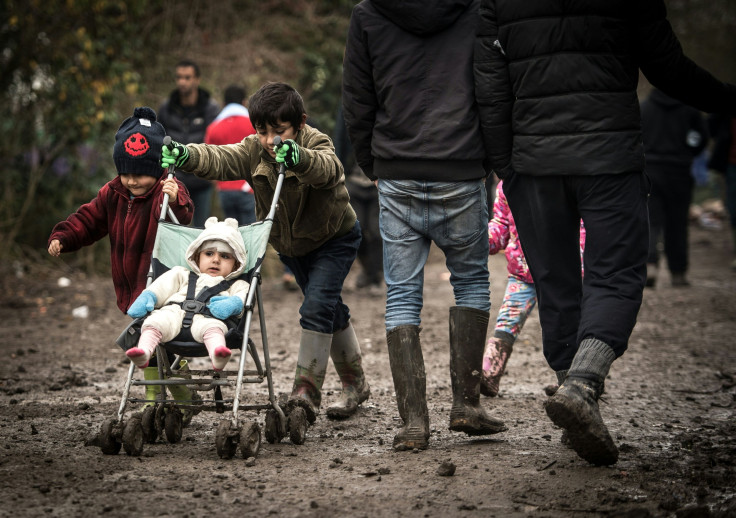Refugee Crisis In Europe: Harsh Winter Weather Does Not Deter Nearly 100,000 December Arrivals

Nearly 100,000 refugees and economic migrants have arrived in Greece in December alone, medical nonprofit Doctors Without Borders reported Tuesday via Twitter. Despite increasingly dangerous conditions at sea, the influx has not slowed with winter's arrival.
Refugees and economic migrants have been arriving in Europe by the hundreds of thousands throughout the year, with around half of them fleeing an ongoing violent conflict in Syria. The vast majority of the nearly 1 million arrivals in 2015 are bona fide refugees, according to the United Nations, defined as people fleeing violent political or social persecution.
The islands of eastern Greece, particularly Lesbos, have been among the most popular points of first entry, as the distance across the Aegean Sea from Turkey, which neighbors Syria, is only a few miles. Despite the short travel distance, the journey to Europe by sea is very dangerous, as most refugees travel in overcrowded inflatable rubber boats. Close to 4,000 people have died during sea crossings, according to data from the United Nations.
Pics of the Year An @MSF_sea rescue in the Med By @francescozizola #refugeecrisis https://t.co/JO5WxwBJC6 pic.twitter.com/tAfWDzrG54
— MSF UK (@MSF_uk) December 27, 2015While less frequently traveled, one of the other most dangerous routes for refugees is the Arctic Circle migration path, in which Syrian refugees travel to Russia on foot or by car and then cross into Norway using bicycles. Around 5,500 people have entered Europe through the Arctic Circle since January, braving below-freezing temperatures, ABC News reported. “I feel I am in a safer place,” one refugee told ABC News when he arrived in Norway, adding, “I am away from fear.”
European countries and international powers have taken different approaches to welcoming refugees. Germany and France have led the charge in continental Europe to sponsor asylum-seekers, with Germany promising there is no limit to the number of refugees the nation will accept and France agreeing to take in tens of thousands of people. Nations in Eastern Europe have been slower to accept refugees, refusing quotas and other European Union suggestions.
© Copyright IBTimes 2024. All rights reserved.






















